Research
For the EU Commission and the EU Parliament, but also within the framework of research programmes such as Horizont 2020, we are active in larger research alliances in the field of sustainable land use. In addition, we also conduct research projects with specific national issues on behalf of federal ministries and agencies. We carry out special studies financed by foundations or on behalf of state governments and regional clients.
We apply research approaches that are adapted to questions of the projects and in which various methods, for example from the fields of qualitative and quantitative social research, political and business sciences or geosciences, are applied and combined. One focus of our work is on participative and transdisciplinary approaches, in which, for example, scenario techniques and innovation tools are used. Together with our partners, we further develop our findings and incorporate them into action guidelines and practical handbooks.
Within our research projects we therefore always move between research and practice and ensure the transfer of knowledge between these areas.
Projects in the thematic field
Agricultural policy
Tools4CAP: Support decision-makers with policy tools

Tools4CAP - which stands for “Innovative Toolbox empowering effective CAP governance towards EU ambitions” - is a four-year project funded with 4 million Euros by the Horizon Europe programme for research and innovation. It will support the...
Details »Pilot project - Establishing an operational programme: structuring the agri-food sectors to safeguard the handing-on of family farms and the sustainability of local agriculture
On behalf of DG AGRI (Directorate-General for Agriculture and Rural Development), Ecorys is conducting a Europe-wide pilot project on the expansion of funding opportunities for operational programs of producer organizations. The IfLS is contributing...
Details »Evaluation of protected geographical indications (GI) and traditional specialities guaranteed (TSG) in the EU
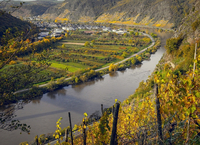
Since 1992 – and revised in 2012 – agricultural products and food can be protected in the European Union with the designation of origin Protected Designation of Origin (PDO) and Protected Geographical Indication (PGI) as well as the Qual-ity Seal...
Details »AGRI PO PSG - Study on economic value of EU quality schemes, geographical indications (GI) and traditional specialities guaranteed (TSG)
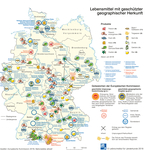
The IfLS is a contributing national expert for Germany and Austria to the study by AND International on behalf of the European Commission - Directorate General Agriculture and Rural Development.
The aim of the study is to collect and/or estimate...
Details »Sustainable land use
AFaktive - Agroforestry as a Key to improve Water Management & Adaptation to Extreme Weather Events
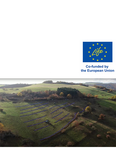
Modern agroforestry, as a nature-based solution that combines trees and/or shrubs with traditional agriculture, can help to improve landscape water retention and thus contribute to protection against drought, erosion and flooding. In view of the need...
Details »Use of biochar in agriculture: Opportunities and limits
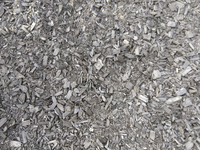
Due to the need to curb climate change, options for actively removing the greenhouse gas carbon dioxide (CO2) from the atmosphere are increasingly coming into focus. One way of converting carbon into a very stable form and preserving it over a long...
Details »Species conservation in the light of modernised agricultural techniques
Half of Germany's land is used for agriculture, about 70 % of which is arable land. A massive decline in both species diversity and abundance can be observed, especially on intensively used agricultural land.
At the same time, land management is...
Details »Integrated pest management methods from the EU: development of a toolbox with the most promising methods for reducing pesticide use in Austria
The DG AGRI-funded (Directorate-General for Agriculture and Rural Development) project 'Developing a Farmers' Toolbox for Integrated Pest Management Practices from Across the Union' aims to identify the most promising ways to reduce the use of and...
Details »Rural areas
Needs analysis for investment support in regions with marginal agricultural productivity – GrenzInvest
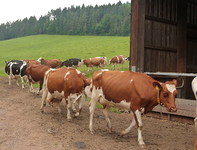
Studies have shown that the demand for investment support is lower in regions with marginal agricultural productivity than in favoured areas. This is especially true for the support of agricultural investments (‘Agrarinvestitionsförderungsprogramm’ –...
Details »Transition Pathways to Regional Sustainability of Agriculture in Europe – FarmPath

In FarmPath, we propose that increasing sustainability in agriculture is best addressed by enabling flexible combinations of farming models, which vary to reflect the specific opportunity sets embedded in regional culture, agricultural capability,...
Details »Enlarging the theoretical understanding of rural development – ETUDE
Rural development policies are widening the scope from a focus on farm structures to a broader framework that includes the rural economy as a whole and the quality of life in rural areas. Simultaneously, patterns of governance have started to change:...
Details »Capitalisation of research results on the multifunctionality of agriculture and rural areas – MULTAGRI
With a partnership of 26 research organisations from 15 countries this project will provide a complete overview of the research that has been carried out, particularly in Europe, on the different aspects related to the multifunctionality of...
Details »Climate change and renewable energys
Potentials of the circular economy for rural development in Germany and Europe
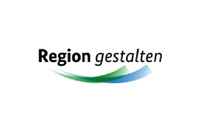
Circular economy means that products and materials are used in cycles, reused or processed into new products. Raw materials are thus no longer lost by being landfilled or incinerated. The circular economy promises resource-efficient solutions....
Details »Ad-hoc study on ways to strengthen the climate protection aspect of agricultural support programmes in the scope of the evaluation of MEPL III (Rural Development Plan of Baden-Wuerttemberg 2014-2020)
The study commissioned by the Baden-Wuerttemberg Ministry of Food, Rural Areas and Consumer Protection (MLR) is dedicated to the question of how climate protection can be strengthened in Baden-Wuerttemberg's agricultural support programmes.
While...
Details »Strategies and measures for climate protection in agricultural land use in the context of the CAP
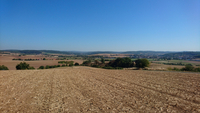
In a project financed by the Landwirtschaftliche Rentenbank, the Institute for Rural Development (IfLS) dealt with the question of how climate protection is addressed in Germany with measures of the Common Agricultural Policy of the European Union...
Details »Integrated urban-rural concept for the production of activated carbon and energy sources from residual biomass – CoAct

Within the framework of the "CoAct" project, the realization of a plant for the conversion of residual biomass into activated carbon and fuels is being examined. In addition to the technical process, the economic and ecological effects and...
Details »Large-scale protected areas and cultural landscape
NaBioKom: Nature parks and biosphere reserves as regional communication platforms for sustainable forest management
Diverse demands on the forest and uses are associated with different interests, including those of forestry and nature conservation actors, which require a fact-based dialogue. The goal of sustainable, near-natural forest management is to balance the...
Details »Quality management in German biosphere reserves - Further development of criteria, recommendations and implementation strategies – BRuNa-Q
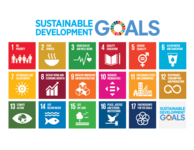
The IfLS carries out the R&D project "Quality Management in German Biosphere Reserves - Development of Criteria, Recommendations and Implementation Strategies for the Federal Agency for Nature Conservation (BfN). The IfLS is working on the project in...
Details »Quality management and improvement of the German UNESCO biosphere reserves – Operationalization of National Recognition and Assessment Criteria for Sustainable Management
To be acknowledged as UNESCO biosphere reserve (BR), the BR have to fulfill a total of 40 criteria. These are so-called recognition criteria (A) and assessment criteria (B). On the one hand, specific structural and functional aspects of a BR are...
Details »National Natural Landscapes and renewable energies – NNL-EE
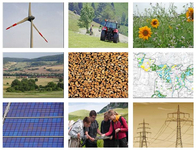
Nature Parks and Biosphere Reserves as parts of the National Natural Landscapes (NNL) make up ca. 30% of the German territory. Changes in land use due to the expansion of renewable energies have to be weighed against protected natural resources, such...
Details »Regional development
Actor networks and multifunctional spaces for art, culture and creative work in rural regions - AMuRaKK
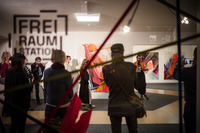
The research project investigates how art, culture and creative workers are integrated into actor networks and how they develop, use and design multifunctional spaces together with local civil society actors and municipal administrations in rural...
Details »Potentials of the circular economy for rural development in Germany and Europe

Circular economy means that products and materials are used in cycles, reused or processed into new products. Raw materials are thus no longer lost by being landfilled or incinerated. The circular economy promises resource-efficient solutions....
Details »Approaches for the assessment and renumeration of social and ecological benefits of organic agriculture at regional level – RegioSÖL
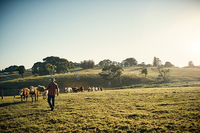
Organic farming makes an important contribution to many ecological and social societal goals. These services are not always assigned to a single farm, but are the result of synergies and cumulative effects on a regional level. These social and...
Details »Perspectives and possible applications of digital participation procedures in rural regional development – DigiBeL

The DigiBeL project is dedicated to a relatively new thematic field. It is funded within the framework of the research announcement 'Rural areas in times of digitalisation' of the Federal Ministry of Food and Agriculture. The aim is to analyse how...
Details »Socio-economics of farm business
Establishing regional processing structures - How can the trend be reversed?
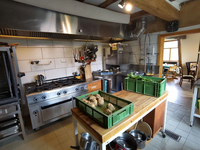
The German food system has a low level of self-sufficiency in many food sectors. The relevance of imports is correspondingly high in many areas and the resilience of the food system with regard to possible crises is low. However, ecological location...
Details »Organic eggs from small production units - Current and alternative utilization of non-marketable eggs
In recent years, the number of farms with small flocks of laying hens (100 - 3,000 hens) has increased. This increase has been observed in both the organic and conventional sectors and logically also causes an increase in so-called dirty, cracked and...
Details »Institutional support needs of producer organisations - ways to strengthen farms
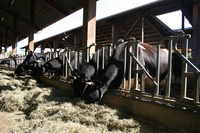
The price crises in various agricultural sectors ((mainly milk and pigs) in recent years have made it clear how weak the bargaining positions of producers of agricultural products are vis-à-vis the processing companies. Against this background,...
Details »Perspectives for agricultural diversification in the field of nature conservation, landscape management and municipal services – LP-Diverse
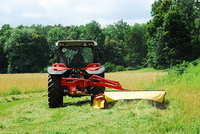
Traditional cultural landscapes usually have a high diversity of species and habitats. From an agricultural point of view, these are often in disadvantageous locations. On the one hand, this results in the social challenges of nature conservation and...
Details »International cooperation
Study: ‘Agricultural and rural transformation in Europe’
Agricultural and rural structural change indicates a long-term process of transformation regarding social and economic aspects, in which the primary sector becomes less significant compared to the secondary and third sector. Causes underlying are of...
Details »Synergies between conservation and food security
The UN estimates that one billion people suffer from chronic hunger and malnutrition. In the past, mainly natural disasters triggered food crises. Today it is the combination of natural and human causes. High food and commodity prices were...
Details »Knowledge and innovation
Prepared for change – Peer-to-peer learning among farms
In the context of structural change in agriculture, diversification is becoming increasingly important for farms. The demands placed on farmers to deal with such and other farm changes make learning processes in which the necessary skills are...
Details »The Impact of Research on EU Agriculture – IMPRESA

IMPRESA was a 38 months research project implemented between November 2013 and December 2016. It comprises nine participants from Research Institutes, Universities, International Organisations and an SME, from six European countries.
The IMPRESA...
Details »Strengthening innovation processes for growth and development – IN-SIGHT
The IN-SIGHT project will contribute to an improved knowledge of innovation systems and processes. Emphasis throughout the project is on gaining a better understanding of linkages in research-practice innovation chains and networks. A guiding idea is...
Details »Innovation strategies for farm households in the rural areas of the new Laender: Agricultural restructuring in regions with a predominance of multiple job holding and income combination
The project was carried out in close collaboration with the Martin Luther University Halle/Saale and with local administration, advisory services, farmers’ organizations and farm households. The main aim of the project was to better understand the...
Details »Governance and cooperation
Study on producer organisations and their activities in the olive oil, beef and veal, and arable crops sectors
IfLS contributes to the study as a sub-contractor. As a first step, this entails the compilation of an inventory of existing producer organisations (PO) and associations of producer organisations (APOs) in Germany. As a second step, IfLS carries out...
Details »Encouraging Collective Farmers Marketing Initiatives – COFAMI
Collective Farmers Marketing Initiatives (COFAMIs) potentially provide an answer to the challenges set to European farmers by changing market and policy conditions. By pooling ideas, experiences and capital they enable farmers to build up market...
Details »Sustainability and resilence
Multi-actor and transdisciplinary development of efficient and resilient MIXED farming and agroforestry-systems – MIXED
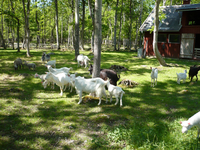
The European MIXED project aims to promote the development of mixed agricultural and agroforestry systems in Europe in the face of more extreme weather conditions. It is studying the benefits of these systems in terms of climate, environment and...
Details »Rethinking the links between farm modernization, rural development and resilience in a world of increasing demands and finite resources – RETHINK
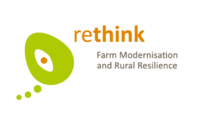
A transdisciplinary research project supported by the European Commission and national funding bodies under the umbrella of FP7 and the RURAGRI ERA-NET
Important questions need attention: How do market forces, societal demands and resource...
Details »Sustainable development of cultural landscapes using integrative landscape concept
In cooperation with the Institute for Spatial Planning and Development Planning (IREUS) at the University of Stuttgart, the Institute for Rural Structural Research (IfLS) is developing an integrative landscape model based on the example of the...
Details »Addressing biodiversity and habitat preservation through Measures applied under the Common Agricultural Policy – CAP-Biodiv
With regard to the biodiversity goals 2020 this study analyzes the biodiversity protection potentials of various agricultural policies. The study is carried out by the Institute for European Environmental Policy (IEEP). As subcontractor the IfLS will...
Details »